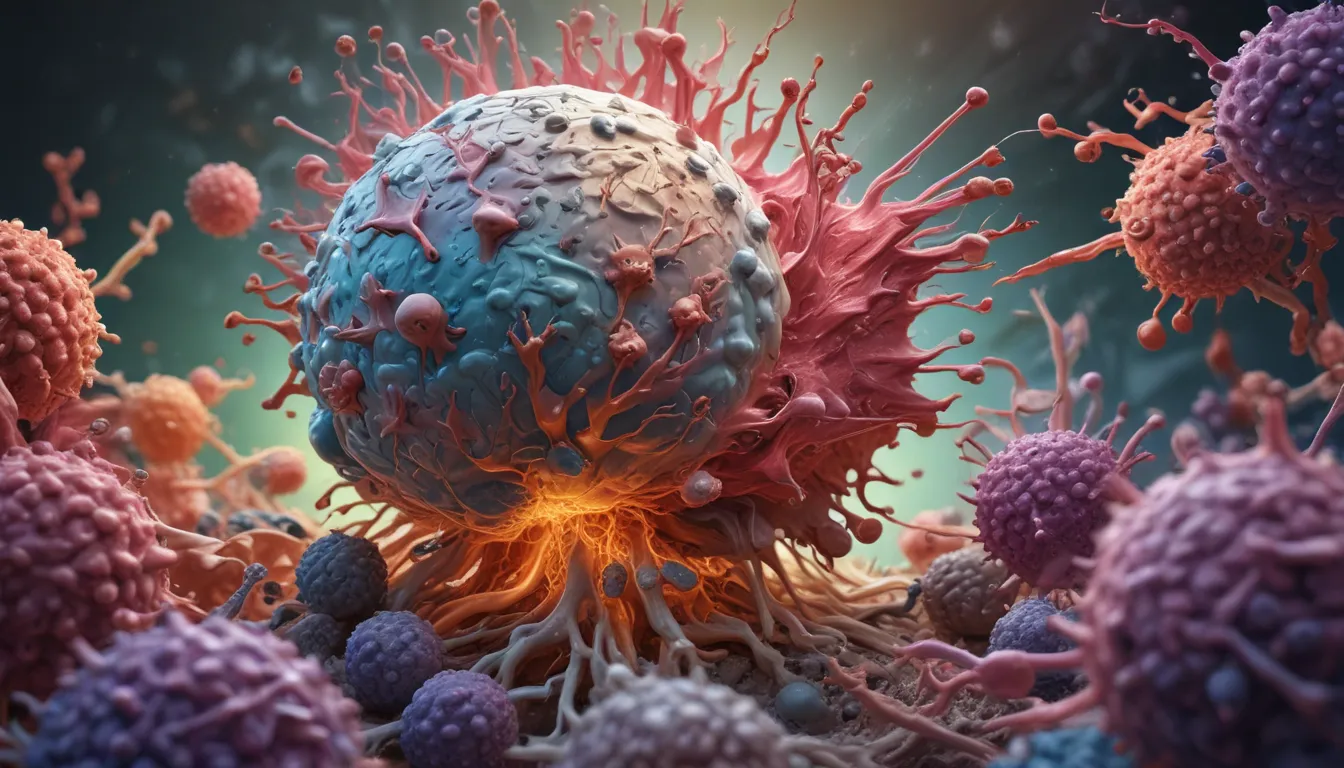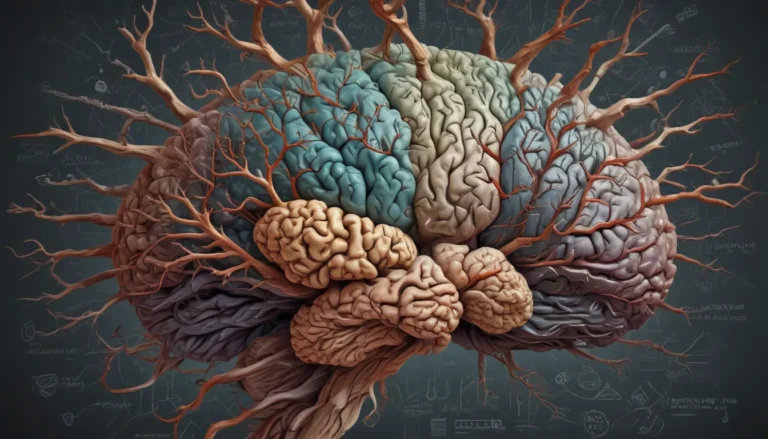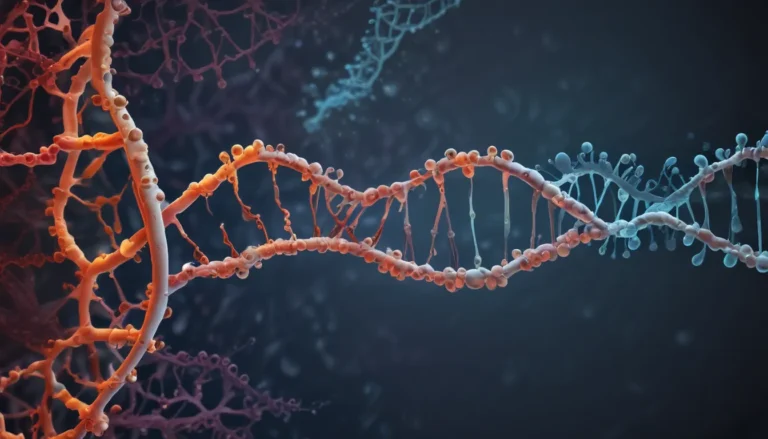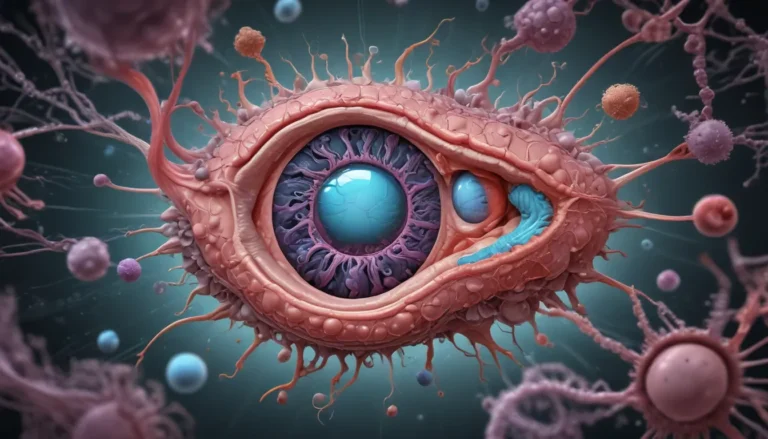A Note About Images: The images used in our articles are for illustration purposes only and may not exactly match the content. They are meant to engage readers, but the text should be relied upon for accurate information.
Tumor immunology stands at the forefront of cutting-edge research, shedding light on the intricate dance between the immune system and cancer. With groundbreaking advances in immunotherapy revolutionizing cancer treatment, the potential for harnessing the immune system to fight cancer is more promising than ever before.
The Intricate Dance of Tumor Immunology
Tumor immunology is a specialized branch of immunology that delves into the dynamic interplay between the immune system and cancer cells. Understanding how the immune system recognizes and eliminates cancer cells, as well as how cancer cells evade immune detection, is at the core of this fascinating field.
The Power of Immunotherapy in Cancer Treatment
Immunotherapy has emerged as a game-changer in the realm of cancer treatment, leveraging the body’s immune system to target and destroy cancer cells with precision. Through innovative approaches such as CAR-T cell therapy and gut microbiome-based treatments, immunotherapy opens new avenues for more effective and tailored cancer care.
Unveiling Key Takeaways in Tumor Immunology:
- The immune system can be trained to combat cancer through immunotherapy, offering hope for advanced cancer treatments.
- Insights into the interaction between the immune system and cancer cells can lead to novel therapies, enhancing cancer care outcomes.
Unraveling the Mechanisms of Tumor Immunology
-
Checkpoint Inhibitors: These potent immunotherapies block proteins on cancer cells, enabling immune cells to identify and attack them, leading to improved patient outcomes in various cancer types.
-
Tumor-Infiltrating Lymphocytes (TILs): These immune cells infiltrate the tumor microenvironment, playing a pivotal role in tumor defense by selectively targeting and eliminating cancer cells.
-
Immunosuppressive Mechanisms: Cancer cells employ tactics like downregulating major histocompatibility complex (MHC) molecules to evade immune detection, thwarting immune response.
-
Dendritic Cells: Crucial in initiating immune responses against cancer, dendritic cells present tumor antigens to immune cells, triggering a targeted immune response.
-
Cancer Vaccines: By stimulating the immune system to attack cancer cells through cancer-specific antigens, vaccines offer a promising avenue in cancer treatment.
Harnessing the Immune System’s Arsenal
-
Chimeric Antigen Receptor (CAR) T-Cell Therapy: This innovative approach modifies patient T cells with synthetic receptors to target and eliminate cancer cells expressing specific antigens.
-
Tumor-Associated Antigens (TAAs): These unique molecules expressed by cancer cells serve as attractive targets for immunotherapy due to their overexpression or mutations.
-
T Regulatory Cells (Tregs): These immune cells can dampen immune responses against cancer, possibly hindering the efficacy of immunotherapies.
Navigating the Complex Tumor Microenvironment
The tumor microenvironment comprises a diverse array of cell types interacting with cancer cells, influencing tumor growth and metastasis through intricate cellular and molecular signals.
Promising Frontiers in Cancer Immunotherapy
-
CAR-NK (Natural Killer) Cell Therapy: Utilizing engineered natural killer cells, this emerging therapy shows promise in targeting and eradicating cancer cells in hematological malignancies and solid tumors.
-
Tumor-Associated Macrophages (TAMs): Immune cells infiltrating the tumor microenvironment can possess either pro-tumor or anti-tumor effects, offering potential targets for immunotherapy strategies.
-
Combination Therapies: Exploring the synergy of different immunotherapeutic agents, combination therapies aim to maximize anti-cancer effects for enhanced treatment outcomes.
Pioneering the Future of Cancer Treatment
As we navigate the fascinating realm of tumor immunology, we uncover groundbreaking discoveries that fuel optimism for more effective and targeted cancer treatments. By amplifying the immune system’s prowess against cancer cells, immunotherapies showcase significant advancements and a beacon of hope for patients worldwide.
Embracing the Future of Tumor Immunology
The journey through tumor immunology unveils a realm of possibilities, where the immune system becomes a formidable ally in the fight against cancer. With ongoing research and collaboration, the horizon of cancer treatment shines brighter, driven by the relentless pursuit of innovation in tumor immunology.
FAQs: Unveiling Insights in Tumor Immunology
-
What is tumor immunology?
Tumor immunology explores the intricate interactions between the immune system and cancer cells, deciphering the mechanisms of immune detection and evasion. -
How do immunotherapies work in cancer treatment?
Immunotherapies harness the immune system to target and eliminate cancer cells, augmenting immune responses and directly attacking malignant cells. -
Are immunotherapies effective for all cancer types?
The effectiveness of immunotherapy varies across cancer types, with some showing remarkable responses while others may exhibit reduced receptivity to these treatments. -
What are the potential side effects of immunotherapy?
Immune-related adverse events may arise from immunotherapy, ranging from mild symptoms to severe complications that necessitate medical intervention.
Embrace the Enlightening World of Tumor Immunology
Embark on a journey through the captivating landscape of tumor immunology, where revolutionary discoveries pave the path to enhanced cancer treatments. By unraveling the complexities of the immune system’s interaction with cancer cells, we unlock a realm of possibilities in the fight against cancer, driven by innovation and a relentless quest for a brighter future in cancer care.






